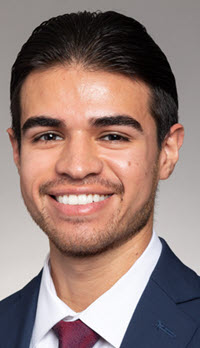Abstract
Excerpted From: René J. Valenzuela, Fulfilling Plyler's Promise: Undocumented Students' Access to Education, 45 Children's Legal Rights Journal 50 (2025) (101 Footnotes) (Full Document)
 Access to quality education remains a significant issue for millions of children in the United States. A robust schooling experience fosters socio-emotional development, creates opportunities for socio-economic mobility, and can enhance lifelong health outcomes. However, obtaining a good education remains a privilege in the U.S. because numerous barriers prevent students from fully benefiting from the U.S. education system. These barriers include poverty, limited access to healthcare, inequitable school funding, and more. In Plyler v. Doe, the U.S. Supreme Court struck down efforts that would have added more barriers to accessing education for undocumented students. In Plyler, the Court held that school districts could not categorically deny undocumented students access to education because of their immigration status.
Access to quality education remains a significant issue for millions of children in the United States. A robust schooling experience fosters socio-emotional development, creates opportunities for socio-economic mobility, and can enhance lifelong health outcomes. However, obtaining a good education remains a privilege in the U.S. because numerous barriers prevent students from fully benefiting from the U.S. education system. These barriers include poverty, limited access to healthcare, inequitable school funding, and more. In Plyler v. Doe, the U.S. Supreme Court struck down efforts that would have added more barriers to accessing education for undocumented students. In Plyler, the Court held that school districts could not categorically deny undocumented students access to education because of their immigration status.
By striking down attempts to exclude undocumented students from schools, Plyler was a watershed moment for immigrant rights in the U.S. Plyler held that unlawful status alone was insufficient to deprive undocumented students of the benefits of education. However, just as Brown v. Board of Education's mandate to desegregate schools remains unmet, Plyler's promise that undocumented students have access to education also remains unfulfilled. Revisiting Plyler is important because it provides a framework to challenge the barriers that impact undocumented student's access to education. Notably, Plyler can also provide guidance in response to the anti-immigrant rhetoric that harms undocumented students today.
This article will begin with a discussion of Plyler v. Doe, first focusing on its analysis under the Equal Protection Clause and secondly, identifying the ethos of the decision. Next, the article will provide a general overview of the undocumented student experience and the federal, state, and local barriers that limit the attainment of Plyler's promise. The article then highlights examples of local policies and initiatives aimed at improving the educational experience of undocumented students, followed by a discussion on the urgency to implement the ethos of Plyler today.
[. . .]
When considering education access for undocumented youth, it is necessary to revisit the holding in Plyler v. Doe. What does it truly mean to affirm that undocumented students cannot be denied an education based on their immigration status? By revisiting Plyler's Equal Protection Clause analysis, it is clear that the decision's ethos advocates for undocumented students to have meaningful access to education. Thus, interpreting and implementing Plyler must consider the systemic and structural barriers enacted by federal, state, and local governments that keep undocumented students out of school and from participating in the very system that is supposed to be their ticket to self-sufficiency and self-improvement.
Revisiting Plyler is critical and instructive today because it calls for a proactive and creative response to the rise in anti-immigrant rhetoric and policies that threaten undocumented students' access to education. However, to meet the moment and respond appropriately, state and local governments must address the existing barriers that undocumented students face when trying to obtain an education. Attaining an education should not depend on the resiliency of undocumented students and their families. Instead, federal, state, and local governments need to consider the comprehensive needs of undocumented students and develop policies that align with the spirit of Plyler. Every student deserves access to an education. It is time for the ethos of Plyler to be embraced to ensure that an education is attainable for all undocumented students.
René J. Valenzuela is a 2025 graduate of Loyola University Chicago School of Law, where he was a Civitas Child Law Fellow and Curt and Linda Rodin Social Justice Fellow.


